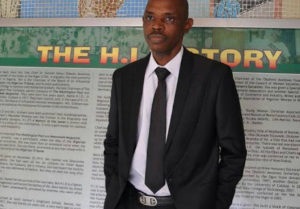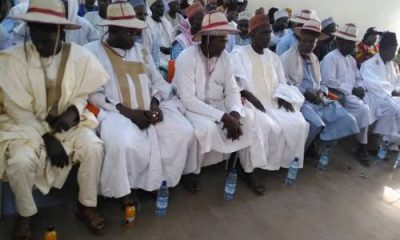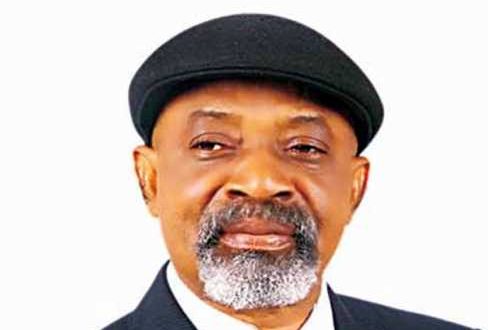News
Democracy’s Ritual Of Death And Anger By Lasisi Olagunju

You know what it means to say “I won’t curse, I won’t pray – and I won’t keep quiet?’ That is what one should do on a day like this when democracy is 18 years old, the age of maturity, and they say we cannot assess those in charge of our affairs. The Buhari government said half time is no time for assessment. It said the skilled player shows his expertise at injury time. Who are we to disagree? We wait then till that last hour. And it will soon be here. Today, therefore, I go to my home state where a coroner’s inquest promised to deliver a verdict today, a public holiday. Osun State is one place where you would think there are no elders again. It is a state of unreason. Everyone there appears gone back, reset to the effeminacy of infancy. If the market there had vigilant elders, the youth there won’t ever lose their heads. I won’t talk yet about an independent House of Assembly making the head of the Executive branch an ‘honorary member’ of its hallowed chamber. And it is not yet my word on the governor voting against the presidential system while seating in the cosy palace of presidentialism. Nor yet about the state’s fractious opposition interested only in cheap power, cheap money and more money, lacking honour. I am interested more in the politics of democracy, living and dying and anger that has racked that state since April this year with the sudden exit of an ex-governor.
Not many deaths in Nigeria have evoked so intense passion, tension and emotion as that of Senator Isiaka Adeleke, a former governor of Osun State. His sudden death was a shock and a surprise. Any death wrapped in the shroud of abruptness must attract a bounteous harvest of suspicions and suspects. We react differently to death. It is a tragedy we all don’t want around us. Death can come slowly and creepily, unfurling like an umbrella. And the severance can be very rudely abrupt and sudden in its finality – like the split-second swoop on preys by wicked hawk. What killed him? He was not killed. He died. How did he die? Questionable questions and assertions all coloured by politics and emotions. Some of the questions will never get answered. They won’t because they are questions tugging the lips of fate – and we can’t question fate. Humanity is at the eternal mercy of the Maker and His designs and decisions. We are helpless in His hands. When the final hour will come and how it will come we are not blessed to know. If death comes suddenly, it jolts and shocks the minders of the dead. If we could see the dead reacting, we would see him surprised too at the suddenness of the crossover. It depends on where you stand in this matter. For his family and associates, the dead did not leave naturally. If that is true, then society asks who took him out and why? It becomes testy and volatile when the dead has a cult following. Adeleke had. It is dangerous, almost suicidal to have an icon as an enemy. Is it not said that when harm is done to the son of a General, a Balogun, you expect raw riots – the Yoruba call that idagiri – in the city centre? Adeleke’s father was Balogun. The former governor was even larger than his old warrior father. He was the Asiwaju of Ede, a warrior-town with a very rich history of valour, war and conquests. So, when such a person suddenly exits the stage, thunderstorms must quake the heavens.
And there have been firefights since his death. There have been riots and near murders and rescue operations too. We exist to be our brother’s helper. That duty of care may beckon anywhere anytime. Some do it and get wounded – like the Tortoise who lost his nose settling a fight between Squirrel and that poisonous rat! Some do it and are lucky to escape with minor bruises. We saw Governor Ibikunle Amosun of Ogun State doing just that for a woman endangered at the burial of Adeleke. Riot and murderous urge and surge are cousins to sudden deaths of political celebrities. And where there are no elders to stick out caution, bedlam reigns. Check history. “Did I save them so that they might destroy me?” was a song-line at the funeral of Julius Caesar in 44 BC. Words of betrayal and wickedness to the dead would arouse pity, anger and resentment anywhere. In Caesar’s case, there was riot and there was death – murder of the innocent and of the guilty. Death is ritual. It is elevated drama with all the elements. Its finality makes all reason sick. Caesar was a populist; Adeleke was street-wise in his populism. In his house, everyday was a festival. Now, when dinner guests suddenly experience role reversal, becoming mourners, they must lose their minds.
Death is ritual, complete with all the drama acts and scenes. Sometimes, it is a tragedy and its various actors live it. The day Adeleke was buried there were sudden role allotments. Did you notice the crowd at the Country Home of the dead realising the suddenness of the end of an era? Did you see that moment the crowd transformed from guests at feasts to stunned mourners at the funeral of their faithful host? Did you see the various key characters? The key actress was that lady who screamed as the mob bayed for her blood. The greatest actor was Governor Amosun who made himself messiah for that weak lamb, wrenching her out of the grip of certain death. Did you notice that moment when the hot crowd forgot the gubernatorial essence of Amosun almost making a casualty of him? I spoke about Osun State lacking elders. That was a rather strange scene, unheard of in the history of that state? What has gone wrong with the people? Where were the elders? and where are they even now? Watch the video clip again, what do you think would have happened if that governor from another state had suffered mortal injury from that rescue operation? Did he have to do that? He didn’t but doing it filled a void. It was a mark of leadership which purified the ritual of that burial. Indeed, subsequent acts and scenes, asides and broadsides and shout-outs across the divides have been possible because of that momentary, risky act of bravery of that governor. Another death would have complicated matters for all concerned. Adeleke’s death and burial came with their own anger, danger and risks. The greatest risk was taken by the Ogun State governor and he gets my high five. So, if anyone deserved a life membership of the Osun State House of Assembly, that person should have been Amosun. His act saved not just that woman who was also a member of that House, his act, more significantly, saved the state the ugliness of murder at the burial of its first governor.
Funerals are not events of mirth. They tell us of our vulnerability, of our own mortality. Funerals sober and scare the wise. At Adeleke’s burial, the scariest moment was that mob action. The noblest role was played by the big man of Ogun State. Losing, momentarily, his prized immunity, and making his gubernatorial body the fodder to save a woman from a mob. That was an exemplar act of leadership which was even done without shots from official rifles. Did that riot have to happen? The reality of the irreplaceability of the departed naturally inflames passions. We react differently in situations of bereavement and mourning. Some go hysterical, going for the enemy nearby. The mob at Adeleke’s burial did that. Some get calm, clear-headed, reining in grief and its violent reaction. Amosun did that. Still some just sit, deep in thought, asking who is next and where death’s thunderbolt would strike tomorrow. Some even mock death, turning it into a drama object like this ancient Syrian governor, Pacuvius, who was fond of playing the dead, holding his own funeral regularly. Mario Erasmo said the man enjoyed life and power so much that he “made Syria his own, (and) with wine and funeral feasts commemorated himself.”
The Coroner’s Inquest ordered by the Osun State government said it would give its finding(s) today. But today has since become a public holiday. So, when is the verdict coming? The Coroner’s sittings hosted their own part of the rites of passage. Medical directors, pathologists, nurses, politicians, policemen gave their various versions of the truth. They variously gave answers to questions that may never be answered. Everyone acted the best way they could act their part. The government carried out its own mandate the best way it thought; the family is aggrieved; that hospital called LAUTECH is drawn into the vortex of controversies. It will swim in it for a very long time. The verdict of the coroner would be out, if not today, definitely some day very soon. But this is about death of a noble, so its effects won’t just go away. No one should expect the drama to end. It won’t end. Death anywhere brings intense passion and emotions. In Africa, persons don’t just die. Death does not kill. Someone does. It means little if the dead was young or old, sick or well. But no matter how we react, the bird has flown. The dead is gone, leaving only plain memories of what were and what could have been. Whatever it is henceforth, an era has ended. After the verdict of the magistrate, what should we expect? Peace? The state should move on – is it not moving on already? The family will move on too into the long, cold night of aloneness without the head. Like all who are suddenly bereaved, they will keep asking why Isiaka – and why us?
-
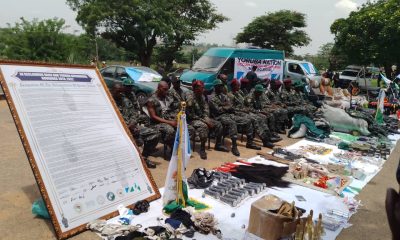
 News4 days ago
News4 days agoUpdated: Oyo Police Parade Arrested Yoruba Nation Agitators
-
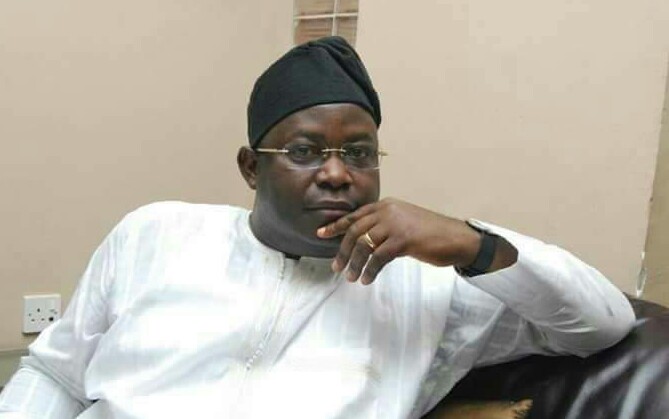
 News3 days ago
News3 days agoJust In: Adeleke Appoints Former Osun Commissioner For Finance, Bolorunduro Chairman Of Living Trust Mortgage Bank
-

 News4 days ago
News4 days ago‘21 Chibok Girls Return With 34 Kids; 48 Parents Die Of Trauma’
-

 News1 day ago
News1 day agoBreaking: JAMB Directs CBT Centres To Arrest Parents Found Near Facilities During UTME Exercise

